
This Changes Everything: Capitalism vs. The Climate
by
Naomi Klein
Published 15 Sep 2014
Eduardo Gudynas, “Buen Vivir: Today’s Tomorrow,” Development 54 (2011): 442–43; Martínez in Temper et al., “Towards a Post-Oil Civilization,” p.17; Eduardo Gudynas, “The New Extractivism of the 21st Century: Ten Urgent Theses About Extractivism in Relation to Current South American Progressivism,” Americas Program Report, Washington, D.C.: Center for International Policy, January 21, 2010. 46. Personal interview with Alexis Tsipras, May 23, 2013. 47. Patricia Molina, “The ‘Amazon Without Oil’ Campaign: Oil Activity in Mosetén Territory,” in Temper et al., “Towards a Post-Oil Civilization,” p. 75. 48. William T. Hornaday, Wild Life Conservation in Theory and Practice (New Haven: Yale University Press, 1914), v–vi. 49.
…
Ossie Michelin, “Amanda Polchies, the Woman in Iconic Photo, Says Image Represents ‘Wisp of Hope,’ ” APTN, October 24, 2013; “Greek Granny Goads Riot Police at Gold Mining Protest with Wartime Song,” (video) Keep Talking Greece, March 8, 2013; David Herron, “Government Still Ensuring Hydraulic Fracturing Happens in Pungesti, Romania, Despite Protests by Villagers,” The Long Tail Pipe, January 5, 2014. 23. FOOTNOTE: Maxime Combes, “Let’s Frackdown the Fracking Companies,” in Leah Temper, et al., “Towards a Post-Oil Civilization: Yasunization and Other Initiatives to Leave Fossil Fuels in the Soil,” EJOLT Report No. 6, May 2013, p. 92. 24. Esperanza Martínez, “The Yasuní—ITT Initiative from a Political Economy and Political Ecology Perspective,” in Temper et al., “Towards a Post-Oil Civilization,” p. 11; KC Golden, “The Keystone Principle,” Getting a GRIP on Climate Solutions, February 15, 2013. 25. “Chop Fine: The Human Rights Impact of Local Government Corruption and Mismanagement in Rivers State, Nigeria,” Human Rights Watch, January 2007, p. 16; “Niger Delta Human Development Report,” United Nations Development Programme, 2006, p. 76; Adam Nossiter, “Far from Gulf, a Spill Scourge 5 Decades Old,” New York Times, June 16, 2010; Christian Purefoy, “Nigerians Angry at Oil Pollution Double Standards,” CNN, June 30, 2010. 26.
…
Godwin Uyi Ojo, “Nigeria, Three Complementary Viewpoints on the Niger Delta,” in Temper et al., “Towards a Post-Oil Civilization,” pp. 39–40; “Nigeria Ogoniland Oil Clean-up ‘Could Take 30 Years,’ ” BBC News, August 4, 2011; Carley Petesch, “Shell Niger Delta Oil Spill: Company to Negotiate Compensation and Cleanup with Nigerians,” Associated Press, September 9, 2013; Eghosa E. Osaghae, “The Ogoni Uprising: Oil Politics, Minority Agitation and the Future of the Nigerian State,” African Affairs 94 (1995): 325–344. 29. Osuoka interview, January 10, 2014; Ojo in Temper et al., “Towards a Post-Oil Civilization,” p. 40. 30. Elisha Bala-Gbogbo, “Nigeria Says Revenue Gap May Reach as Much as $12 Billion,” Bloomberg, November 1, 2013; Ed Pilkington, “14 Years After Ken Saro-Wiwa’s Death, Family Points Finger at Shell in Court,” Guardian, May 26, 2009; Frank Aigbogun, “It Took Five to Hang Saro-Wiwa,” Associated Press, November 13, 1995; Andrew Rowell and Stephen Kretzmann, “The Ogoni Struggle,” report, Project Underground, Berkeley, California, 1996. 31.
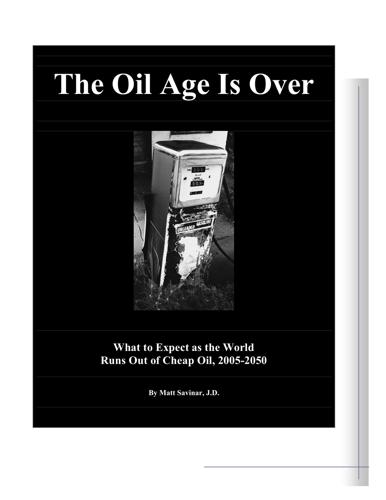
The Oil Age Is Over: What to Expect as the World Runs Out of Cheap Oil, 2005-2050
by
Matt Savinar
Published 2 Jan 2004
Dealing with an energy crisis of this scope is not as simple as just "thinking of something." We are talking about the collapse of a highly complex society. Complex societies make massive changes over the course of decades or centuries, not 5-15 years. When faced with sudden change, complex societies tend to collapse. The post-oil collapse of North Korea, for example, while not completely analogous to countries such as the US, shows us what happens when a complex, industrialized, nation runs into a massive oil shortage: North Korea has never had any real oil resources of its own. During the Cold War, it imported its oil from the Soviet Union, China and Iran.
…
They had plenty of necessity, in addition to as much native intelligence and work ethic as any other people, but they were unable to come up with any inventions that even moderately alleviated their situation. Necessity is the mother of invention, but she needs some food (oil) to give birth to anything. The entire world now finds itself in a situation similar to the one North Korea found itself in 1990. With worldwide oil shortages on the horizon, there is no one we can appeal to for more oil. The post-oil collapse of North Korea should serve as a warning to anyone who dismisses the issue of oil depletion with a cavalier, "I'm not worried — we'll think of something." 53. People survived for thousands of years before oil. There is no reason we can’t survive without oil. Absolutely, as long as the population contracts to what it was before the oil age. 54.
…
What are some public policies that, if implemented, will help us manage this crash instead of just running into it? Peak Oil is going to happen. People are going to die. We cannot stop it. But we may be able to minimize the amount of suffering while maximizing the chances of building a successful post-oil civilization if we implement appropriate public policies such as: 102 The Oil Age is Over A. Civilized Measures to Support Population Reduction The primary cause of the looming energy crisis is the fact that the world has more people than can be supported in a steady-state-renewable-energy environment.
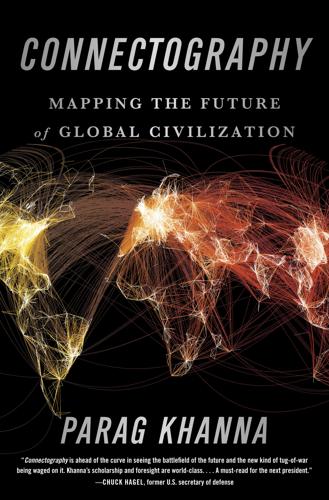
Connectography: Mapping the Future of Global Civilization
by
Parag Khanna
Published 18 Apr 2016
Foreigners often set up companies in offshore “Creative Zones” located (onshore) in other emirates such as Fujairah, granting them residency permits that they then use to set up and fully own onshore companies. The ruling class knows full well that were it not for upgrading to superior international standards for governing every sector, Dubai would have remained little more than a shipping entrepôt. Most important, opening the door to foreign-operated zones has paved the way for a post-oil future in which already 75 percent of Dubai’s economy is construction, real estate, finance, manufacturing, retail, and other services. As Dubai’s rapid rebound since the crisis has proved, governments and companies working hand in hand is crony capitalism only in theoretical orthodoxy.2 In the real world, it is part of strategic economic survival
…
The few known cases have taken place after about thirty years of residence, and it has only been granted to Muslims with very strong domestic patrons. *3 KAEC is also home to the country’s first dedicated innovation lab, SiNova, and nearby is the King Abdullah University of Science and Technology, which was developed in collaboration with leading Western universities and focuses on environmental sciences and crop engineering, key areas for a post-oil and pro-employment Saudi economy. *4 Over three million people and almost two million vehicles cross this border annually. CHAPTER 12 GETTING ON THE MAP POP-UP CITIES The recently published Global Trends 2030 report of the National Intelligence Council includes a very plausible scenario called “Non-state World” in which urbanization, technology, and capital accumulation together accelerate the rise of special economic zones effectively run by capitalist forces: “It is as if the central government acknowledges its own inability to forge reforms and then subcontract out responsibility to a second party.

Player One
by
Douglas Coupland
Published 30 Jun 2011
But, of course, Luke has also learned from his flock that the harder one tries to be different from one’s parents, the more quickly one becomes them. Luke notices that Rick has his eyes set on Rachel, and Rachel seems to have hers set on Rick. Luke’s embezzled twenty grand is most likely worthless in a post-oil economy, so his Darwinian advantage over Rick is gone. But Luke’s need to stay alive overpowers all, even his need to reproduce. And before long, Luke finds himself looking up at Rick, who’s standing on the bar, prying a ventilation grille off the ceiling. The plan is for Rick and Luke to crawl up into the ventilation system and try to find grilles or faceplates they can pop out so they can scan the area around the building, locate the sniper or snipers, if possible, and find a safe way out of the situation.
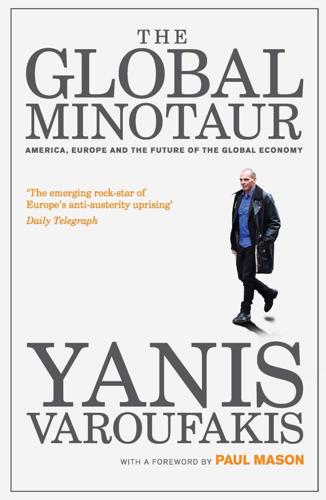
The Global Minotaur
by
Yanis Varoufakis
and
Paul Mason
Published 4 Jul 2015
However, there was a snag: when one buys foreign assets, at some point these assets start to generate income, which must eventually be repatriated. Japan thus ran the risk of ceasing to be able to remain a net capital exporter and of turning into a rentier nation. This prospect was at odds with the post-oil crisis Japanese growth strategy, which was to concentrate on high-value-added, low-energy-using industries like electronics, integrated circuits, computers and mechatronics (industrial robots). On 22 September 1985, the United States, Japan, West Germany, France and Britain signed the Plaza Accord.
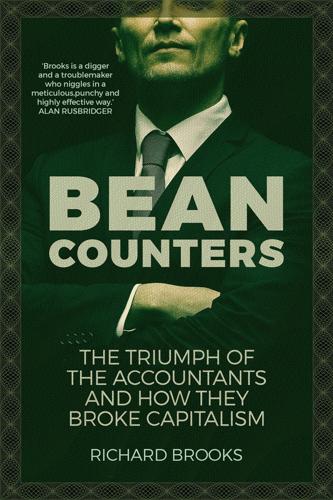
Bean Counters: The Triumph of the Accountants and How They Broke Capitalism
by
Richard Brooks
Published 23 Apr 2018
The bean counters’ special genius was to cash in prolifically on the latter even as they badly flunked the former. With the election of Margaret Thatcher in the UK and Ronald Reagan in the US, early 1980s Anglo-Saxon capitalism was in the grip of ‘Chicago School’ economics. First came the tough medicine of monetarism, restricting the money supply to cure the inflation of the post-oil-crisis 1970s in line with the theories of economists such as Milton Friedman at the University of Chicago. Then came the equally transformative prescription of deregulating the banking system and freeing cross-border finance from the old shackles of exchange controls. Whatever else this course of treatment achieved, the financialized world economy it created would become a theme park for false accounting, tax avoidance and regulation-dodging, with the bean counters marshalling their customers from one ride to another.
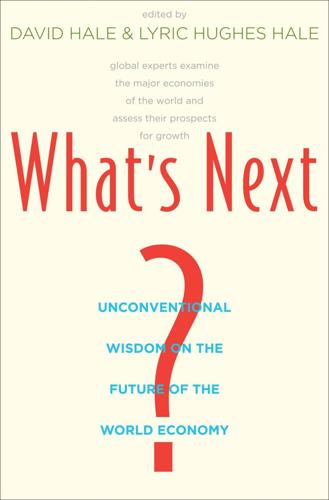
What's Next?: Unconventional Wisdom on the Future of the World Economy
by
David Hale
and
Lyric Hughes Hale
Published 23 May 2011
While the near-term economic horizon is currently dominated by an uneven economic recovery process and a reduced appetite for commodities as an asset class, a longer-term time horizon is needed to make sense of market behaviors that fail to be fully determined by the present supply-demand balance. Let us reflect, therefore, on what has been learned since the financial crisis of 2008–2009 regarding the longer-term market determinants. We shall begin with the move toward a post-oil economy that some think could be imposed by geological limits—“peak oil” and the assumed twilight in the desert1—or by concerns for climate change. We shall then turn our attention to the energy investment scene and its implications for spare production capacity, and conclude with an examination of the short-term determinants of energy prices, including investment in “paper barrels.”
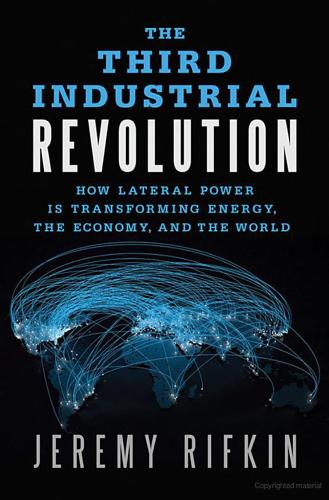
The Third Industrial Revolution: How Lateral Power Is Transforming Energy, the Economy, and the World
by
Jeremy Rifkin
Published 27 Sep 2011
The deserts of the Middle East and North Africa have more solar potential per square inch than any other region in the world—more energy potential, in fact, than all of the oil ever extracted from deep beneath its sand dunes. The United Arab Emirates, the fifth-largest oil producing power, is already preparing for a post-oil era. Abu Dhabi is investing billions of dollars in the construction of a new city rising from the desert. It’s called Masdar, a post-carbon city that will be run exclusively by the sun, wind, and other forms of renewable energy. It’s a Third Industrial Revolution urban space, the first of thousands of such cities that will be nodes in the distributed networks that will crisscross every continent.
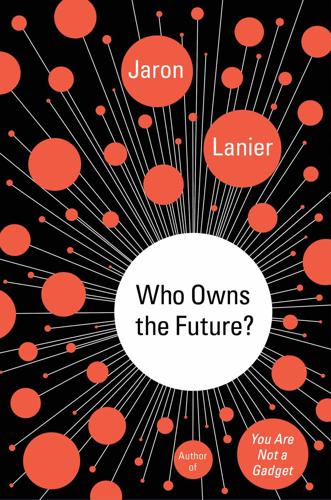
Who Owns the Future?
by
Jaron Lanier
Published 6 May 2013
It is still a centrally planned society to a significant degree. It’s hard, even, to imagine one of China’s neighbors doing it. Would an aging Japan automate its factories to undercut China? Seems like a significant risk. But somebody somewhere would find the motivation. Maybe a low-population but capital-rich Persian Gulf nation worried about the post-oil future would fund gigantic automated factories to undercut China in the production of consumer electronics. It might even happen in the United States, which has ever-fewer manufacturing jobs to protect anyway. What would it look like to automate manufacturing? Well, the first word that comes to mind is temporary.
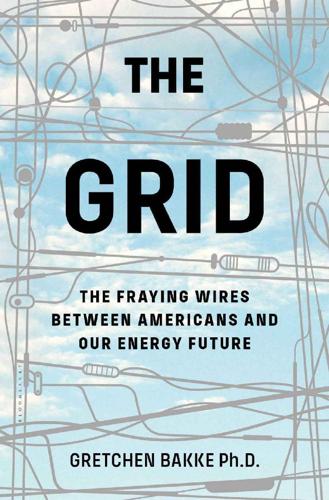
The Grid: The Fraying Wires Between Americans and Our Energy Future
by
Gretchen Bakke
Published 25 Jul 2016
America like a sledgehammer: Daniel Barber argues that there was a sense of worry about the imbalance between sites of production (of oil) and sites of use as early as the late 1940s in the United States and that midcentury solar architecture (craftsman) homes are a result of this. Nevertheless the reality of this issue didn’t hit home until 1973. Daniel A. Barber, “The Post-Oil Architectural Imaginary in the 1950s,” public lecture, “Lines and Nodes: Media, Infrastructure, and Aesthetics,” at New York University’s Media, Culture, and Communication symposium, 2014. investor-owned leviathans: “U.S. Electric Utility Industry Statistics (2015–2016 Annual Directory & Statistical Report),” American Public Power Association, accessed October 26, 2015, http://www.publicpower.org/files/PDFs/USElectricUtilityIndustryStatistics.pdf.
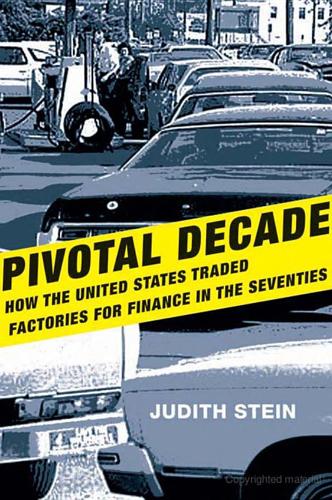
Pivotal Decade: How the United States Traded Factories for Finance in the Seventies
by
Judith Stein
Published 30 Apr 2010
Iraq agreed to supply Japan for ten years in return for a $1-billion credit for a liquified petroleum gas (LPG) processing facility and a refinery, as well as petrochemical, fertilizer, and aluminum plants.69 France negotiated a similar deal. Britain, France, and Germany contracted for Saudi Arabian oil in return for armaments.70 Forced to pay more than the posted oil price, the industrial countries got their revenge by overcharging on the goods they delivered. The paupers paying cash got to pay the higher oil prices because the barter price became the market price. The British, banking on future North Sea revenues, also did not work for lower prices.71 Japan, completely dependent upon Middle East oil, which constituted 80 percent of its energy mix, lacked diplomatic leverage, so it adjusted to high prices.
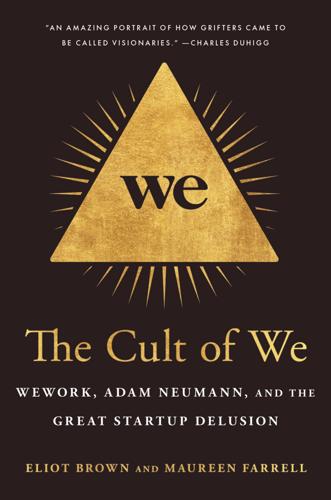
The Cult of We: WeWork, Adam Neumann, and the Great Startup Delusion
by
Eliot Brown
and
Maureen Farrell
Published 19 Jul 2021
shrewd businessman, doing deals: Bradley Hope and Justin Scheck, Blood and Oil: Mohammed bin Salman’s Ruthless Quest for Global Power (New York: Hachette Book Group, 2020), chap. 2. favor the New York Stock Exchange: Summer Said and Ben Dummett, “Saudi Arabia Favors New York for Aramco IPO,” Wall Street Journal, Feb. 21, 2017. “Undoubtedly, it will be the largest fund”: John Micklethwait et al., “Saudi Arabia Plans $2 Trillion Megafund for Post-oil Era: Deputy Crown Prince,” Bloomberg News, April 1, 2016. largest international investment: Douglas MacMillan, “Uber Raises $3.5 Billion from Saudi Fund,” Wall Street Journal, June 1, 2016. former Deutsche Bank colleagues: Hope and Scheck, Blood and Oil, chap. 7. thirteen separate planes: Arash Massoudi, Kana Inagaki, and Simeon Kerr, “The $100Bn Marriage: How SoftBank’s Son Courted a Saudi Prince,” Financial Times, Oct. 19, 2016.
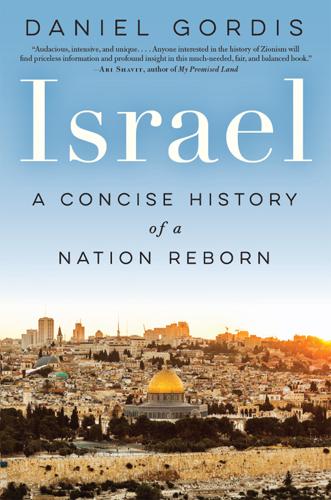
Israel: A Concise History of a Nation Reborn
by
Daniel Gordis
Published 17 Oct 2016
Particularly among Israel’s political Right, there were many who would never forgive Kissinger for having delayed arms shipments when they had been so desperately needed. France’s support of the Arab state by supplying military equipment surprised few, but Israelis were stunned that Britain—which, like much of post-oil-boycott Europe, was abandoning Israel and moving toward the Arabs—had imposed an embargo on military aid to the region. When Britain finally broke its own embargo, it was by training Egyptian helicopter pilots. When Israel complained, Britain told Israel that they were better off having those pilots training in England than at the front in the Middle East.
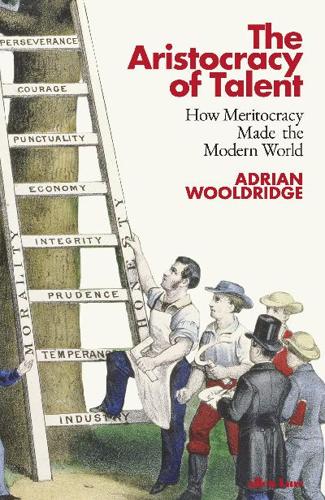
The Aristocracy of Talent: How Meritocracy Made the Modern World
by
Adrian Wooldridge
Published 2 Jun 2021
Italy, the homeland of nepotismo, enjoyed a post-war boom like France and Germany but has been stagnating since the mid-1990s. The handful of countries that have succeeded in combining anti-meritocratic cultures with high standards of living are petro-states that are dependent on the accident of geography rather than the ingenuity of their people. They will surely revert to poverty in the coming post-oil age unless they change their habits. A raft of cross-country surveys reinforces this impression. The Organization for Economic Cooperation and Development has repeatedly demonstrated that high social mobility promotes economic growth.3 Both the World Bank and Transparency International show that corruption is inimical to long-term prosperity.
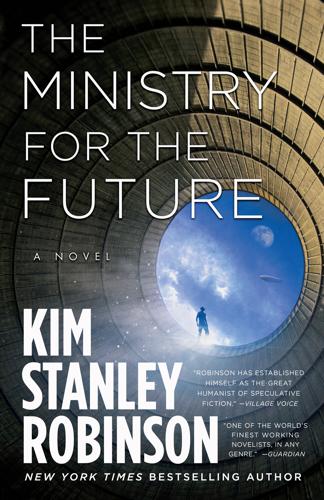
The Ministry for the Future: A Novel
by
Kim Stanley Robinson
Published 5 Oct 2020
But in any case they made use of an already-existing technology which was very extensive and powerful. If the industry could be paid to do something with its tech to help in the current situation, all the better. The fossil fuel lawyers and executives looked interested when this was proposed to them. The privately owned companies saw a chance of escaping with a viable post-oil business. The state-owned companies looked interested at the idea of compensation for their stranded assets, which they had already borrowed against, in the usual way of the rampant reckless financialization which was the hallmark of their time. Paid to pump water from the ocean up to some catchment basin?
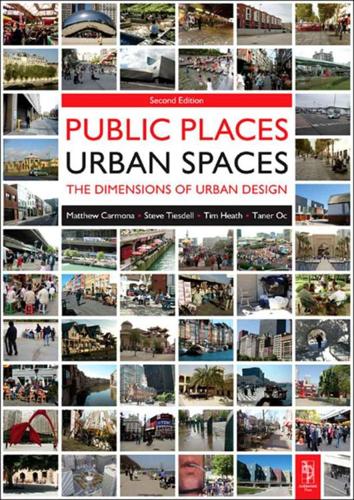
Public Places, Urban Spaces: The Dimensions of Urban Design
by
Matthew Carmona
,
Tim Heath
,
Steve Tiesdell
and
Taner Oc
Published 15 Feb 2010
But it happens to coincide with our imminent descent down the slippery slope of oil and gas depletion, so that all the potential discontinuities of that epochal circumstances will be amplified, ramified, reinforced, and torqued by climate change.’ The depletion of fossil fuel reserves and climate change and pollution will inexorably impact on urban form. The likely consequences are, as yet, unknown, and there are more pessimistic and more optimistic observers of the capacity to retrofit environments for a post-oil scenario. On the pessimistic side, Kunstler (2005: 275) highlights the prospects for many parts of the US’s south-west, which has been made habitable through cheap energy:‘Practically all settlement in this region has occurred during the 150-year run of the oil age, with the most explosive growth phase only in the past fifty years … Transportation, air conditioning, and water distribution will become critically problematic in the years ahead.